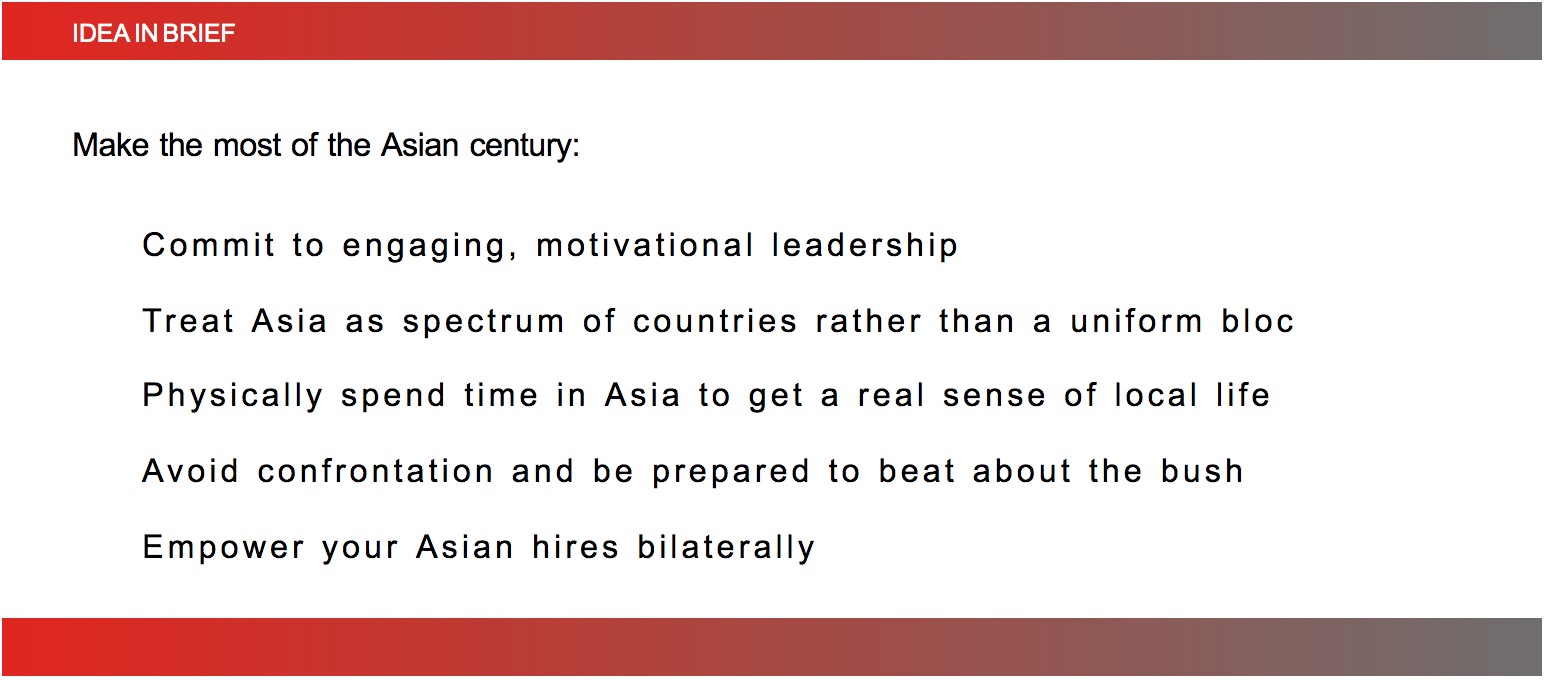IS YOUR BUSINESS ASIA-READY? HOW TO ACE THE ASIAN CENTURY
by Telstra
Australian businesses with an adaptable attitude can maximise the opportunity the Asian century presents.
The Asian century constitutes one of the most remarkable shifts in economic power ever. For companies seeking to capitalise on the change, success can be lucrative – and elusive – as the Telstra survey of more than 4000 Asia-based executives, Connecting Countries, reveals. Respondents advocate creativity, curiosity and resilience sustained by an honest, respectful culture that lures local talent.
As Telstra’s Global Head of Enterprise and Country Managing Director Singapore, Andrew Wildblood recommends luring that talent through a personal leadership approach. “It is about people and how you communicate, how you engage people, how you motivate people and how you get people to do the best for you and for your customers and for your business,” Wildblood says.
So your firm must have the human touch and be “values-based”, which translates well across Asia. Still, understanding individual countries is crucial, according to Wildblood, who manages people in 20 countries globally across Europe, The US, Asia and Australia. So adapt and adopt multiple cultures, he says, branding the idea of a uniform bloc “naive”.
In fact, Asia is home to a spectrum of cultures with distinctive values and strategies. Some multinationals have hubs in Hong Kong and Singapore, which may seem similar but run different regulatory regimes that require close scrutiny, says Wildblood. He recommends embedding abroad to boost cross-cultural insights.
Facing the challenges overseas markets pose from a base within those countries has meant he has grown tremendously, he says. “And I think in today and tomorrow’s economy, unless you’ve witnessed that or considered how you’re going to be relevant, then you’re probably going to struggle in the increasingly connected world.”
According to consultant, David Thomas, CEO of the Asia-Pacific consulting firm Think Global Consulting, Aussie businesses struggle.
“Australia has an inherent problem in dealing with Asia,” Thomas says. “It comes down to the fact that we’re a very egalitarian society, and they’re a very hierarchical society – and I think there lies the nub of the problem.”
Western companies are usually informal with flat structures and an openness to ideas from all. The style is direct, even confrontational, Thomas says, contextualising the second lesson in the report, about cross-cultural leadership.
You have to let go, which is scary, Thomas says. Yet Scandinavian giants including Maersk and Nokia thrive through empowering locals – giving them senior decision-making responsibilities and training and integrating them, unlike Australian companies that retain a head-office culture.
So chief executives should empower their trans-Pacific Asian staff, according to Thomas, who also calls for more Asians in Australia in senior roles. The number on Australian boards is minuscule, he says, advising that managers tap Australia’s existing Asian community.
“That is the bridge,” Thomas says. “And if we want to engage with Asia, we need to very quickly accelerate the careers of Asian-Australians – who have got the skills, they’ve got the education, they’ve got the capabilities.” They just need to be pushed through.
IDEA IN BRIEF
Make the most of the Asian century:
- Commit to engaging, motivational leadership
- Treat Asia as spectrum of countries rather than a uniform bloc
- Physically spend time in Asia to get a real sense of local life
- Avoid confrontation and be prepared to beat about the bush
- Empower your Asian hires bilaterally


